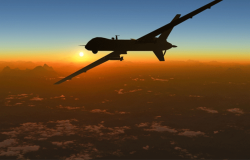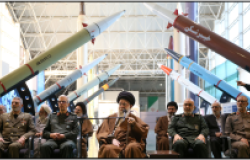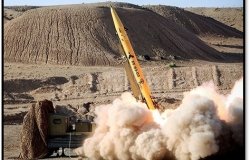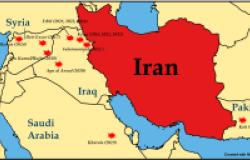The Road to Zero Nukes: The First Five Years
George Perkovich, Vice President for Studies and Director, Nonproliferation Program, Carnegie Endowment for International Peace
Overview
Speaker: George Perkovich, vice president for studies and director of the Nonproliferation Program, Carnegie Endowment for International Peace
This meeting, jointly sponsored by the Center's International Security Studies and the Los Alamos National Laboratory, was another in the ongoing Nonproliferation Forum series.
President Barack Obama recently outlined his vision of a world free of nuclear weapons in a major speech in Prague. The speech echoed an influential Wall Street Journal op-ed published in 2007 by former Secretaries of State Henry Kissinger and George Shultz, former Secretary of Defense William Perry, and former Sen. Sam Nunn. This high-level advocacy of nuclear abolition has created a sense of expectation. George Perkovich addressed the near-term issues that could put us on the road to a world of zero nuclear weapons.
The most obvious first step, he stated, is to complete U.S.-Russian negotiations on a successor to START. Perkovich said that this anticipated agreement is a relatively modest step, but one that is all that can be feasibly be accomplished by START's looming expiration date in December 2009.
"A political reality test for going to zero" will be ratification of the Comprehensive Test Ban Treaty (CTBT), Perkovich said. He added that CTBT ratification by the U.S. Senate was "absolutely necessary" and a step the rest of the world views as a "no-brainer." A Brazilian diplomat recently told Perkovich that the non-nuclear weapon states had already paid for CTBT ratification several times, including the indefinite extension of the Nuclear Non-Proliferation Treaty by the NPT signatories in 1995.
Beyond a START follow-on and CTBT ratification, Perkovich said that still deeper reductions in nuclear arsenals will hinge on two key bilateral relationships—between the United States and Russia, and between the United States and China. An old strategic issue from the Cold War—the mix between offensive and defensive forces—will be recast in the 21st century. With both Russia and China, there are limits on how low they will go. In part the problem is one of perceptions: for example, a ballistic missile defense system that the United States has pushed for as a counter to Iran's emerging missile force is viewed by Russia as an effort to degrade its nuclear deterrent. Perkovich argued that deep cuts will not be possible without a strategic dialogue to achieve a convergence of U.S., Russian, and Chinese views.
China is alone among the declared nuclear weapon states in opposing a Fissile Material Cutoff Treaty (FMCT) to end the production of nuclear materials for weapons. Perkovich stated that without China, India won't agree to an FMCT, and without India, Pakistan won't. The Chinese refusal to accept the FMCT stems from uncertainty about the size of the U.S. strategic nuclear arsenal—that is, whether the combination of U.S. offensive and defensive systems will affect the Chinese ability to maintain a minimum deterrent.
Likewise, it is hard to see the United States agreeing to an arsenal in the low 100s without a resolution of the nuclear impasse with Iran. "The willingness of the ‘haves' to reduce will be influenced by what the ‘have-nots' do," Perkovich observed. Among the major challenges that must be addressed on the road to a world of zero nuclear weapons is how the expansion of nuclear energy, which is necessary for energy security and climate concerns, can be accomplished without facilitating nuclear weapons proliferation.
Thank you for your interest in this event. Please send any feedback or questions to our Events staff.










